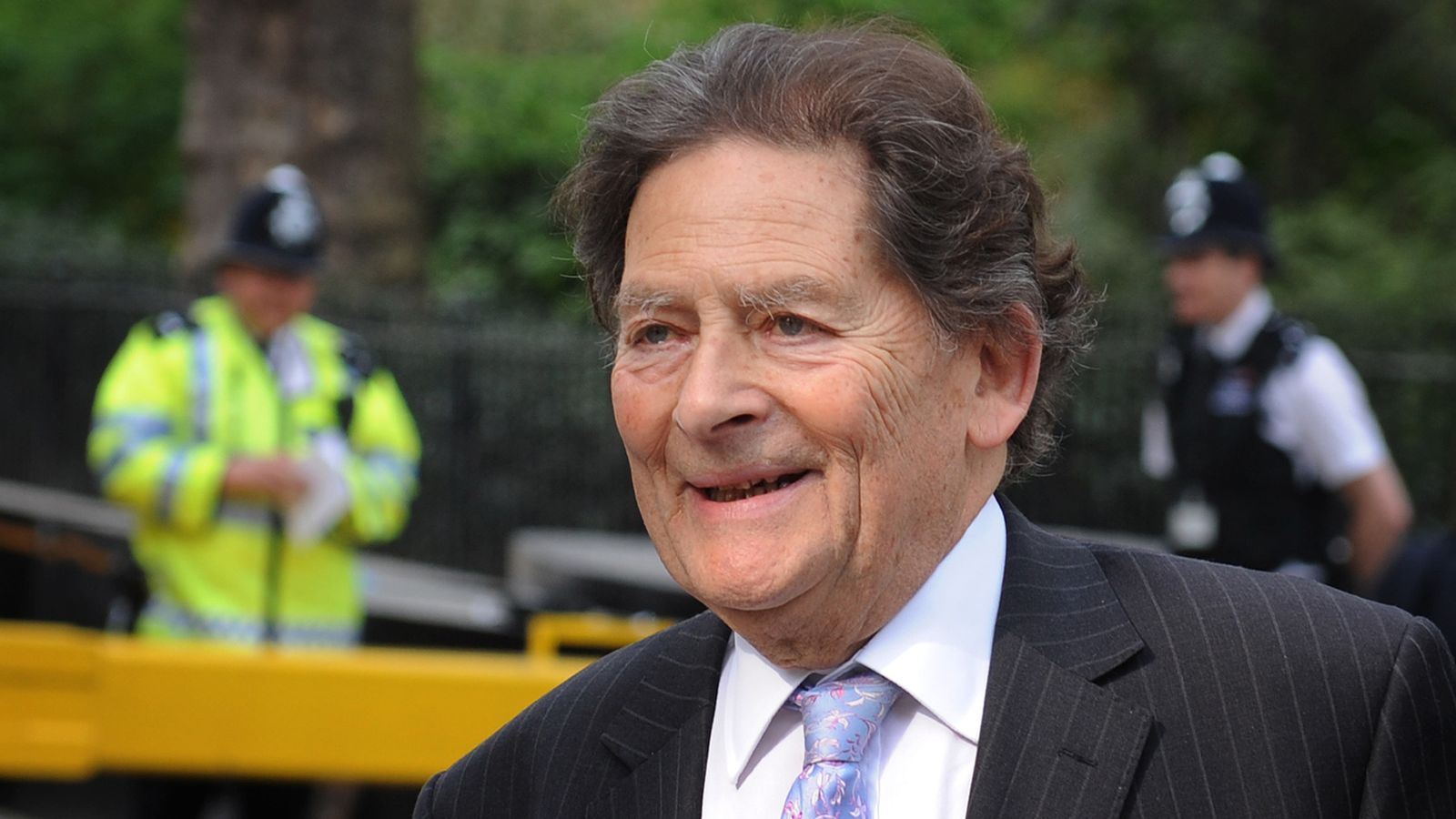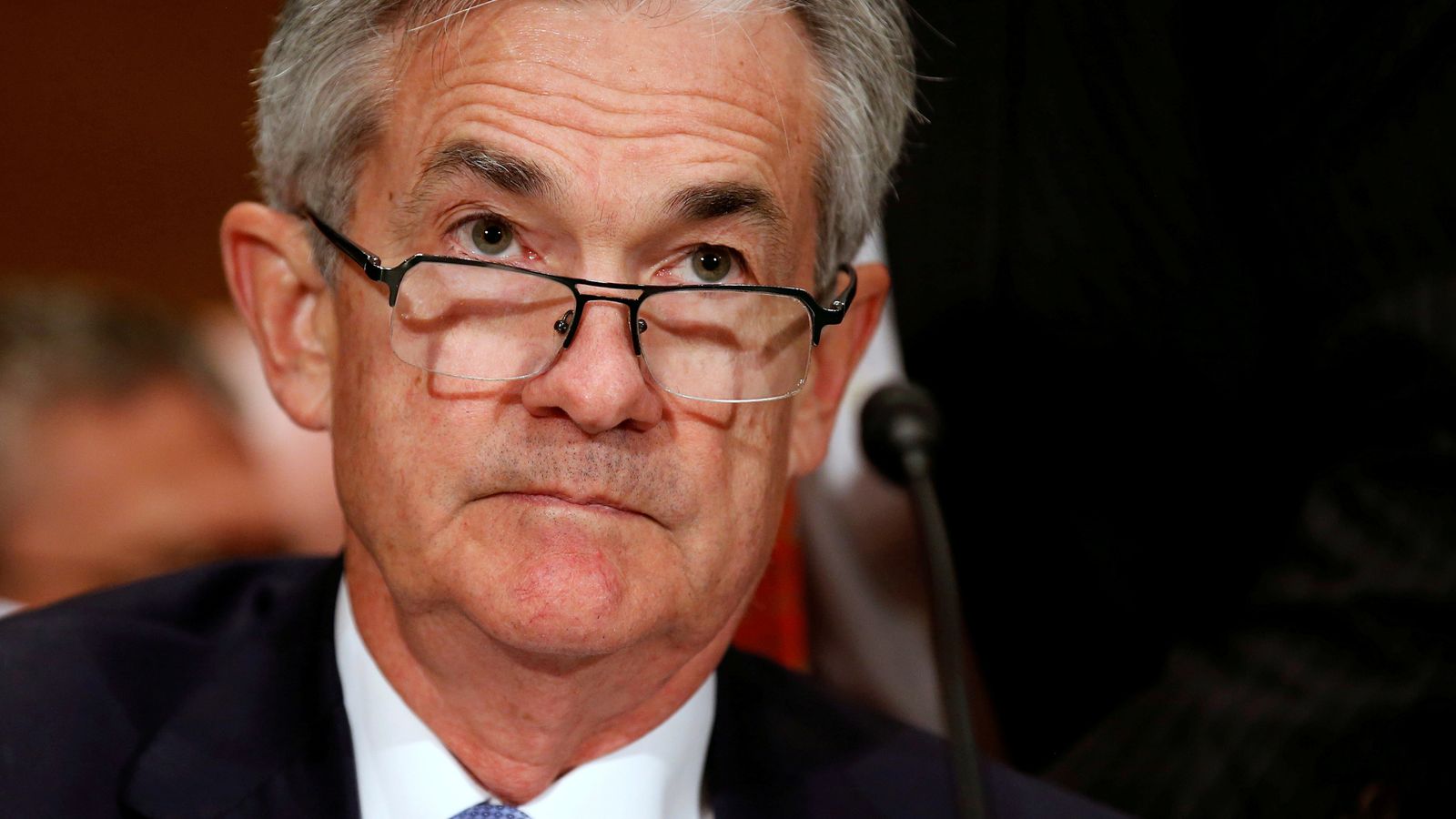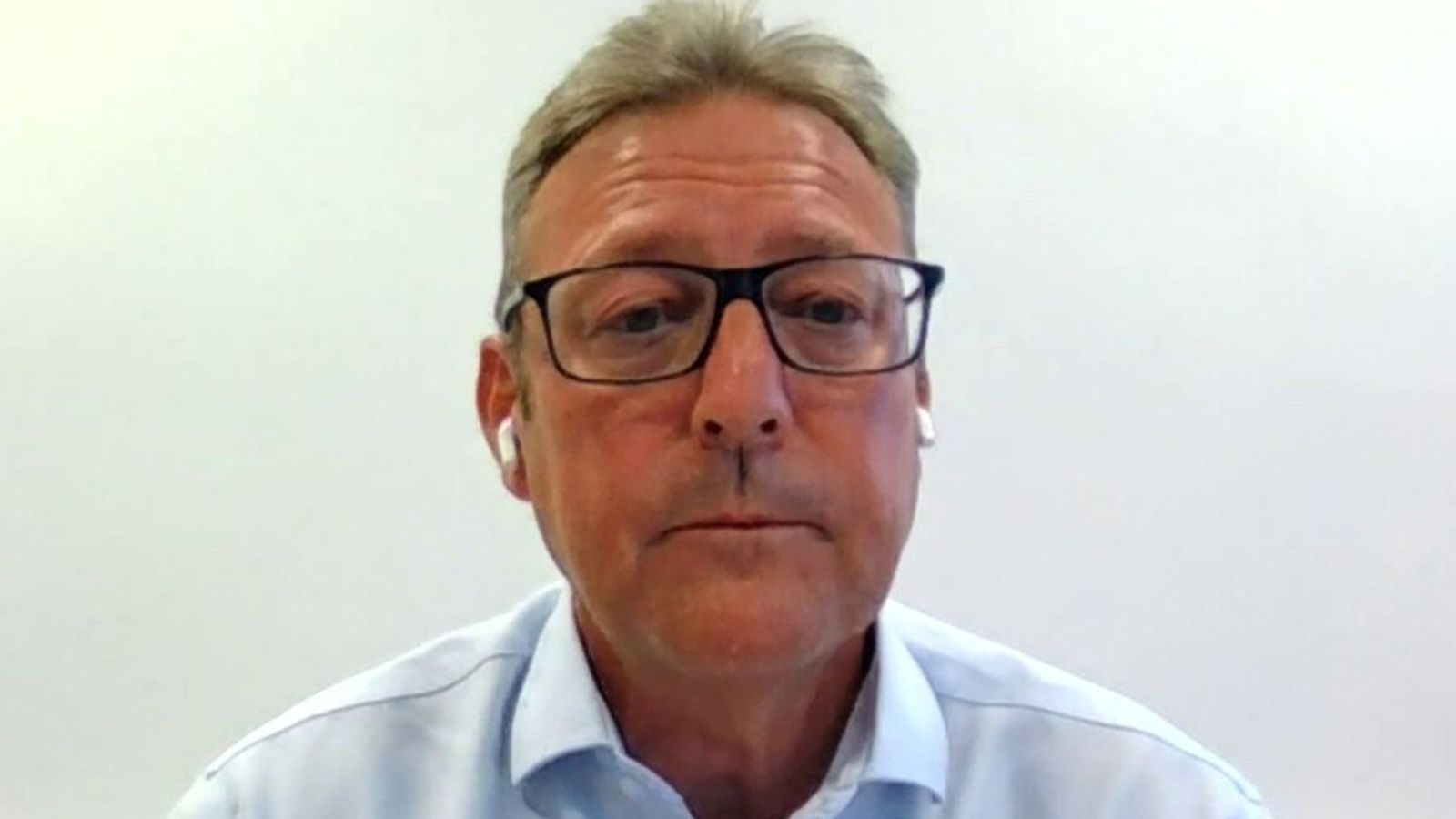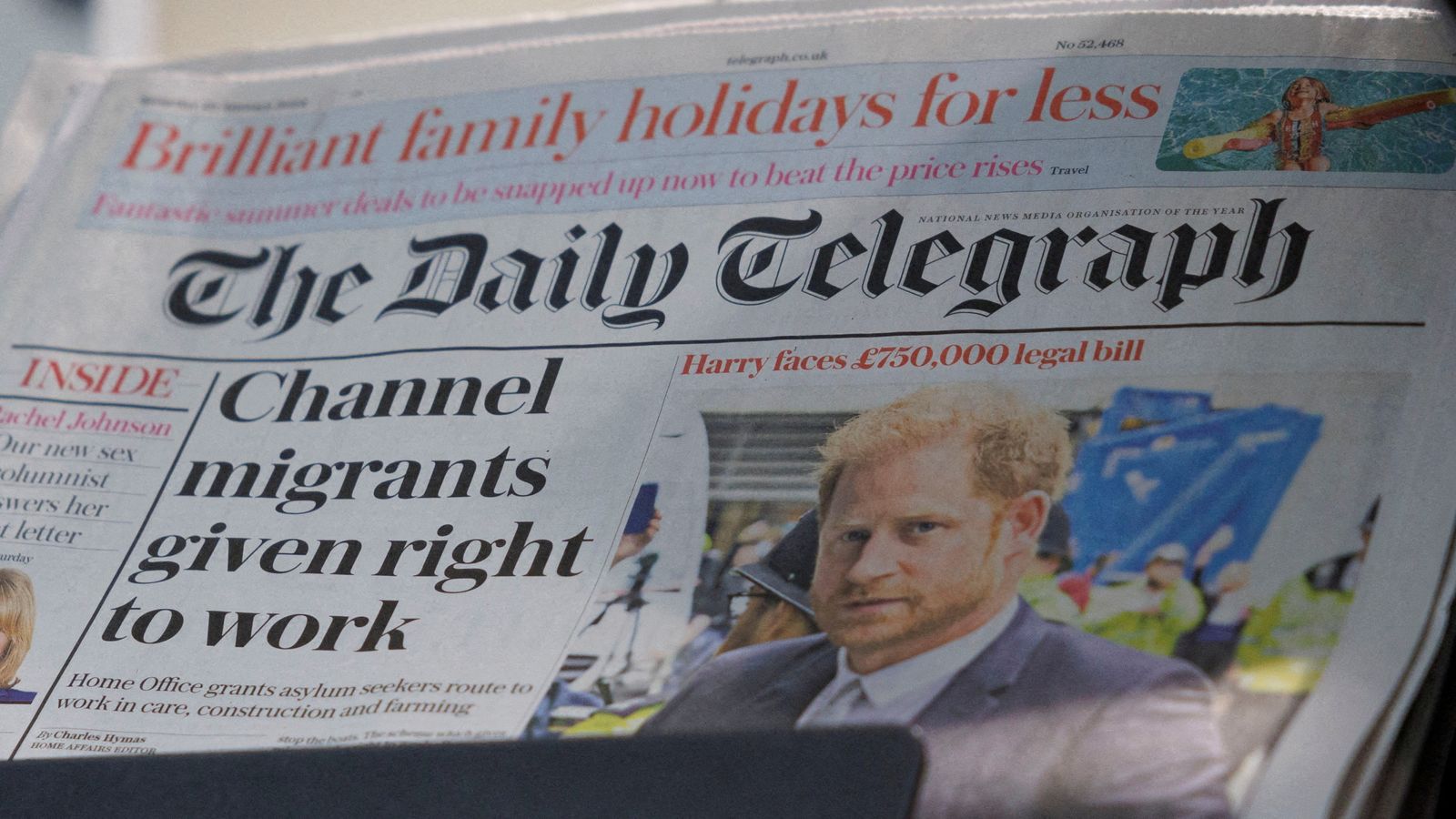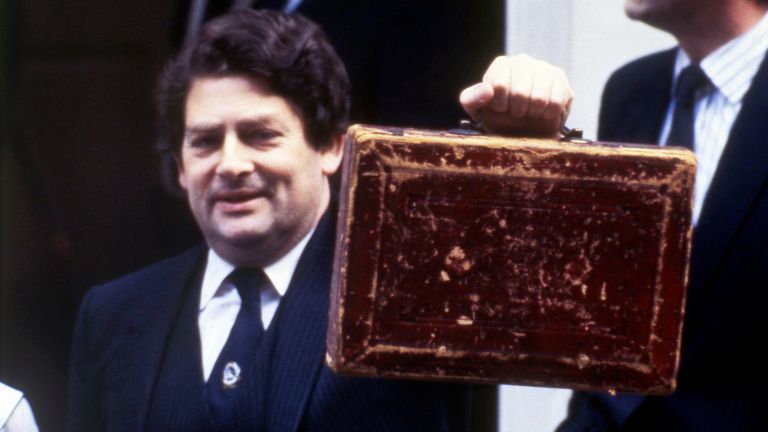
Politicians have paid tribute to former Conservative chancellor Nigel Lawson after his death aged 91.
Prime Minister Rishi Sunak said the party grandee “was a transformational chancellor and an inspiration to me and many others” as he paid tribute on Twitter.
Lord Lawson was a Conservative MP representing the constituency of Blaby from 1974 to 1992, and served in Margaret Thatcher’s cabinet from 1981 to 1989.
Best known for his role as chancellor, he retired from the House of Lords in December, ending a parliamentary career stretching back nearly five decades.
Former Prime Minister Boris Johnson called Lord Lawson “a giant” and said he was “a fearless and original flame of free market Conservatism”.
“He was a tax-cutter and simplifier who helped transform the economic landscape and helped millions of British people achieve their dreams,” he added.
Read more: The life of Nigel Lawson, Thatcher’s right-hand man
Chancellor Jeremy Hunt said Lord Lawson was a “rarity amongst politicians, someone who transformed our thinking as well as transforming our economy”.
Foreign Secretary James Cleverly called him “a true statesman”, adding: “His contributions to this nation will not be forgotten.”
Deputy Prime Minister Dominic Raab said Lord Lawson was “a giant who changed the political weather, a lodestar for Conservatives, and a kind man always generous with his wisdom”.
Tory Party chairman Greg Hands said he will be remembered “for his clarity of thinking, commitment to free market economics and willingness to challenge orthodoxies”.
Former prime minister David Cameron tweeted: “One of the remarkable things about Nigel was that even 5, 10, 20 years after he left the Treasury, officials and Ministers were still asking ‘what would Lawson have done?’. He’ll be greatly missed.”
Lord Frost, former Brexit negotiator, described him as a “true economic radical”, “a support of Brexit” and “the author of simply one of the best political memoirs ever”.
The journalist who entered politics
Lawson was a financial journalist and editor of right-wing magazine The Spectator before entering politics at the age of 42.
He served a number of positions in Mrs Thatcher’s government before she appointed him as chancellor – a position that ensured he would go down in the history books.
Lord Lawson, the second longest-serving chancellor after Gordon Brown, was key to Mrs Thatcher’s economic policies and success.
He pushed ahead with tax reforms, reducing corporation taxes and lowering National Insurance contributions for the lower-paid, while extending the VAT base.
The Lawson Boom
One of his major triumphs was the Big Bang of 1986, which saw the City’s financial markets deregulated and strengthened London as a financial capital – though in 2010 he admitted the “unintended consequence” of that was the 2007 financial crisis.
He even had a period of economic growth named after him. The Lawson Boom saw the UK economy on the up after 1986, with unemployment halved.
However, Lord Lawson didn’t always see eye to eye with Mrs Thatcher. His resignation in 1989 came after rows over Europe and economic policy, and marked the early stages of her downfall a year later.
Mr Lawson remained as a backbencher until 1992, when he was elevated to the House of Lords with a life peerage, and was known as Lord Lawson of Blaby.
After stepping down as an MP, he lost five stone and published The Nigel Lawson Diet Book, which became a best seller.
He remained active in politics in his later years. He chaired the Vote Leave campaign ahead of the 2016 EU referendum but faced allegations of hypocrisy after applying for a French residency card.
He also faced criticism for being a denier of the climate crisis.
Lord Lawson is survived by five of his six children including celebrity chef Nigella Lawson and journalist Dominic Lawson. One of his daughters, Thomasina, died from breast cancer aged 32 in 1993.

